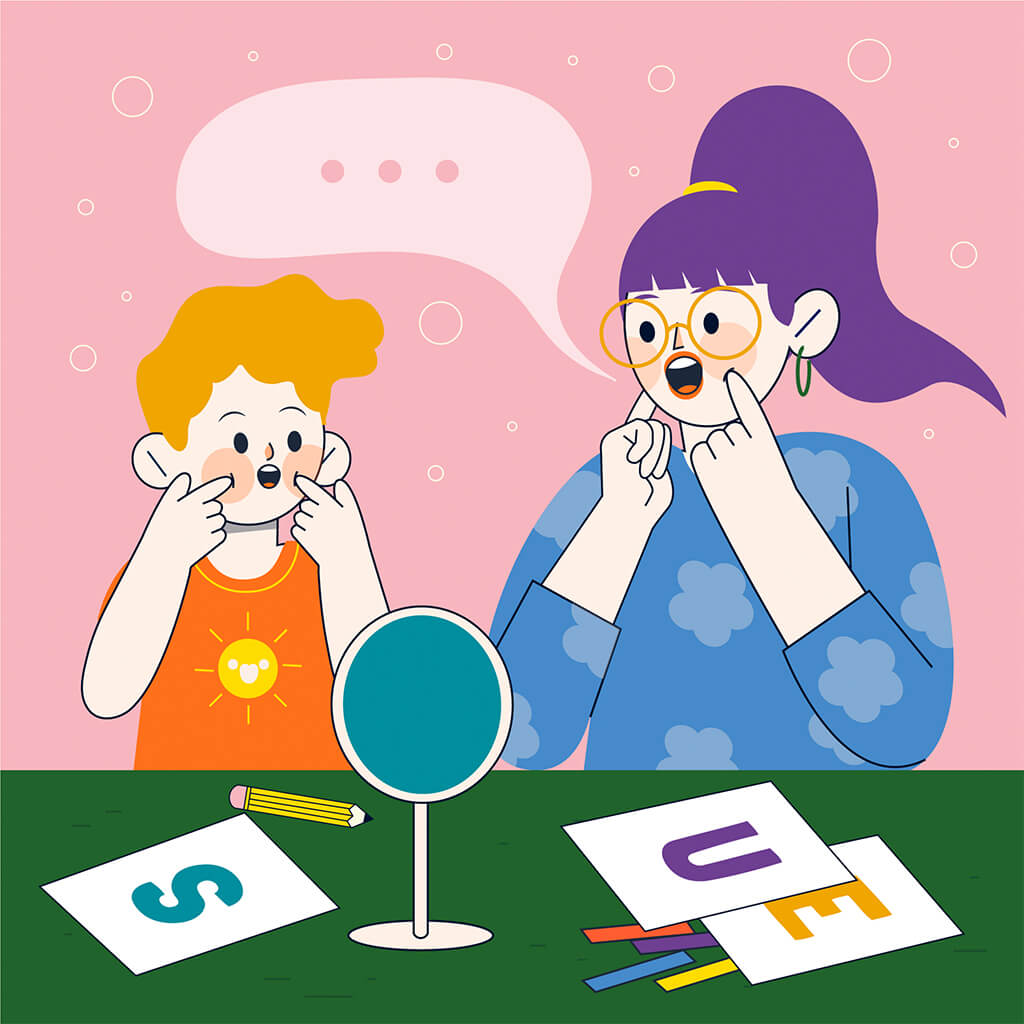Understanding Speech Sounds
When a child has difficulty saying certain sounds correctly or clearly, it may be a sign of a speech sound delay or disorder. These difficulties may include articulation issues, where the physical production of certain sounds is impacted, or phonological disorders, where a child struggles with the patterns of sounds in their language. Every child’s speech develops at their own pace, but when speech is hard to understand or significantly different from peers of the same age, early support from a qualified speech pathologist can make all the difference.
At Look Who’s Talking SLP, we provide gentle, evidence-based speech sound therapy to help children speak clearly and confidently. Our team is experienced in working with children of all ages and developmental levels, and we tailor each plan to match the child’s goals, learning style, and personality. Whether your child has trouble with a few tricky sounds or is showing broader signs of a phonological disorder, we’re here to support you every step of the way.
We offer therapy in Sinagra and across Perth’s northern suburbs, with in-clinic, mobile, and Telehealth options available to suit your family’s needs. Our services are available to both private and NDIS participants.
Common Signs to Look For
Is your child showing any of the following?
- Sounds are substituted, left out, or added in words (e.g., “tat” for “cat”)
- Hard to understand even by familiar adults
- Frustration when trying to communicate
- Speech seems behind compared to peers
- Concerns raised by educators, GPs, or family members
- Difficulty with pronunciation issues like “s”, “g”, “t”, or blends
- Unclear speech that affects confidence or participation in class
These challenges can affect not only how others understand your child but how your child feels about talking — that’s why early speech intervention can have such a strong impact.


How We Help
Our speech pathologists use a range of fun, functional and proven therapy approaches to support your child’s progress. We begin with a comprehensive assessment to identify the types of speech sound errors your child is making and why they might be happening. From there, we create an individualised therapy plan that targets their unique needs.
We work closely with families and educators to make sure therapy goals are practical and relevant, and we’ll always give you strategies to use at home. Most importantly, we aim to build your child’s confidence and enjoyment in speaking, while steadily improving their speech clarity.
FAQs – Speech Sounds
Every child develops differently, but by age 3, most speech should be understood by people outside the family. If you’re unsure, it’s best to book an assessment — early support makes a big difference.
Articulation therapy targets physical difficulties making sounds (like a lisp), while phonological disorders involve patterns of sound errors — for example, saying “gog” instead of “dog.”
Yes. We regularly support children with Autism, global developmental delay, and other neurodivergent profiles, adjusting our approach to suit their learning needs and communication goals.
Absolutely. With consistent therapy and home practice, children often show significant improvements in clarity, confidence, and communication skills.
Yes! We offer speech sound therapy both in-clinic and via Telehealth, making access easier for busy families or those outside the Sinagra area.


